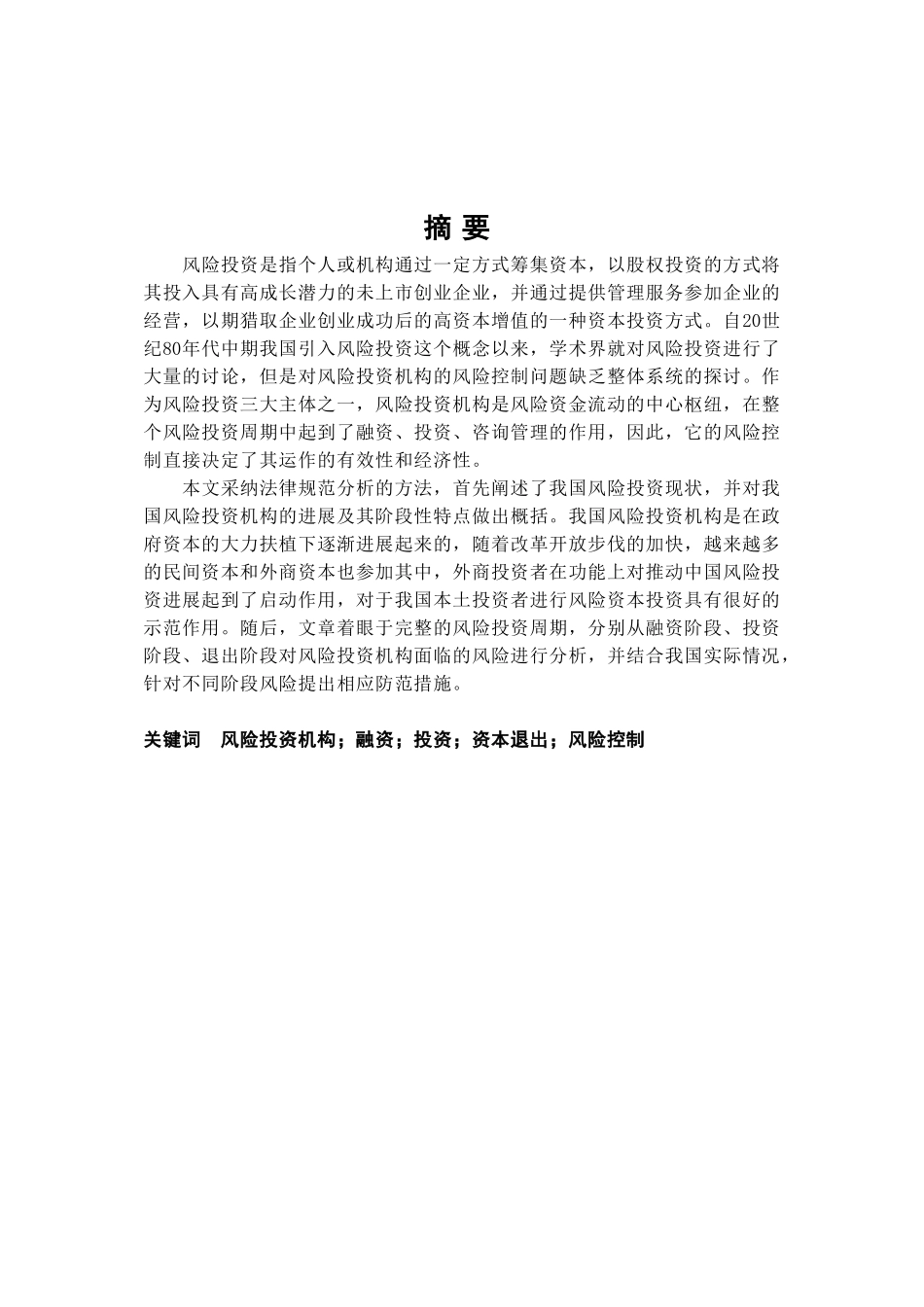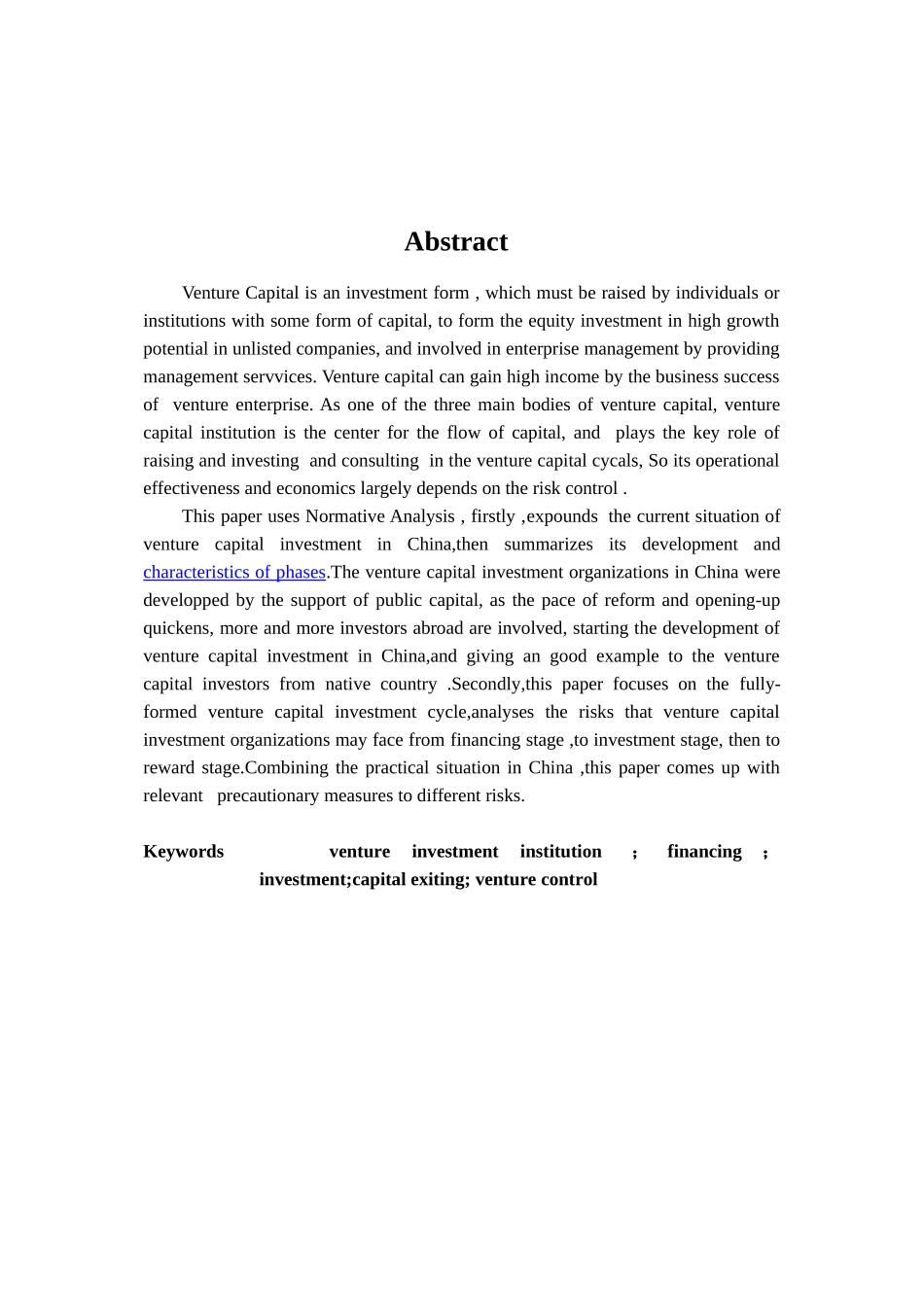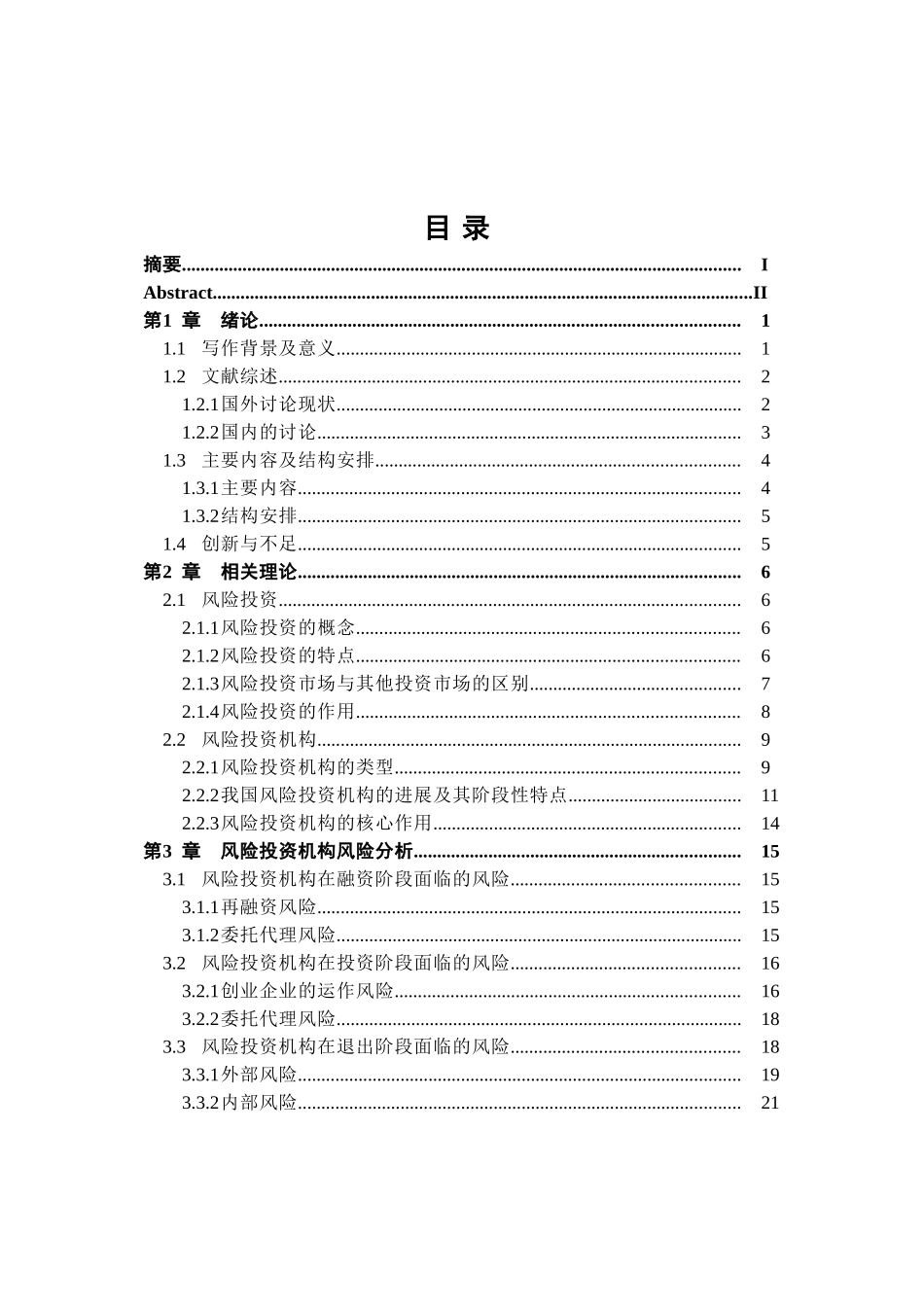摘 要风险投资是指个人或机构通过一定方式筹集资本,以股权投资的方式将其投入具有高成长潜力的未上市创业企业,并通过提供管理服务参加企业的经营,以期猎取企业创业成功后的高资本增值的一种资本投资方式。自20世纪80年代中期我国引入风险投资这个概念以来,学术界就对风险投资进行了大量的讨论,但是对风险投资机构的风险控制问题缺乏整体系统的探讨。作为风险投资三大主体之一,风险投资机构是风险资金流动的中心枢纽,在整个风险投资周期中起到了融资、投资、咨询管理的作用,因此,它的风险控制直接决定了其运作的有效性和经济性。本文采纳法律规范分析的方法,首先阐述了我国风险投资现状,并对我国风险投资机构的进展及其阶段性特点做出概括。我国风险投资机构是在政府资本的大力扶植下逐渐进展起来的,随着改革开放步伐的加快,越来越多的民间资本和外商资本也参加其中,外商投资者在功能上对推动中国风险投资进展起到了启动作用,对于我国本土投资者进行风险资本投资具有很好的示范作用。随后,文章着眼于完整的风险投资周期,分别从融资阶段、投资阶段、退出阶段对风险投资机构面临的风险进行分析,并结合我国实际情况,针对不同阶段风险提出相应防范措施。关键词 风险投资机构;融资;投资;资本退出;风险控制AbstractVenture Capital is an investment form , which must be raised by individuals or institutions with some form of capital, to form the equity investment in high growth potential in unlisted companies, and involved in enterprise management by providing management servvices. Venture capital can gain high income by the business success of venture enterprise. As one of the three main bodies of venture capital, venture capital institution is the center for the flow of capital, and plays the key role of raising and investing and consulting in the venture capital cycals, So its operational effectiveness and economics largely depends on the risk control .This paper uses Normative Analysis , firstly ,expounds the current situation of venture capital investment in China,then summarizes its development and characteristics...


